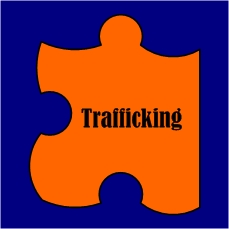Nepal Cables Reveal Troubling Adoption Findings UPDATED

The US Embassy in Kathmandu issued many cables between 2006 and 2008. The Schuster Institute for Investigative Journalism at Brandeis University obtained them through a Freedom of Information Act request. This recent article explains many of the important sections.
Orphaned or Stolen?
[The Huffington Post 2/18/11 by E.J. Graff]
The March 16, 2007 cable includes the names of the adoption agencies that were operating during this time:
- Adopt International of San Francisco, California
- Claar Foundation of Boulder, Colorado
- Crossroads Adoption Services of Minneapolis, Minnesota
- Faith International Adoptions of Tacoma, Washington
- Florida Home Studies, Adoption Inc. of Sarasota, Florida
- MAPS (Maine Adoption Placement Service of Houlton, Maine
- Reaching Out Through International Adoption, INC (ROTIA) of Somerdale, New Jersey
- Starzak’s Nepalese Children’s Foundation.
On their website, Adopt International (JCICS member) lists the following countries that it currently works in : China, Korea, Nepal and Russia. Florida Home Studies went on to be a Hague-denied agency and lists Nepal as a country they operate in. You can read about Claar foundation (former JCICS member) here Cribs and Crimes Claar Foundation Felonies or here Pound Pup Legacy Claar Foundation. On their website, Crossroads (JCICS member) lists the following countries that it currently works in China, Colombia, Guatemala (closed), India, Nepal, Philippines, Ukraine and Vietnam (closed). Faith International (JCICS member) lists the following countries on their website: China, India, Nepal, Ghana, Japan and Vietnam (closed).MAPS (JCICS member) lists China on their website. ROTIA (former JCICS member) information can be found here: Pound Pup Legacy ROTIA .
A key part of this cable includes the concealed and surprise large fees paid in-country. Additionally, Focus on Children agency (which went on to be Hague-denied) was photolisting children. Several cases brought to the attention of the Embassy had suspicious circumstances surrounding the relinquishment. Furthermore, the Embassy questioned how the facilitators operate. The experiences under “Other Concerns” are also important to read.
For JCICS operations in Nepal during this time, read REFORM Talk Post January to June 2007 JCICS Files , REFORM Talk Post July to December JCICS Files , REFORM Talk Post January to May 2008 JCICS Files .
According to RT, it has now emerged that 80 per cent of the children that were put up for adoption already had parents.
Uneducated parents in the outlying villages, with little money, are easily persuaded to give up their children for a mere $15 and the promise of a better life and good education for the children. The children are then sold on to the approximately 500 illegal orphanages in the city. From there an orphaned child can then fetch up to $25,000 if sold on to families from abroad.
In Nepal child rights organizations estimate that there are currently around 15,000 children living in orphanages in the city, although these numbers are difficult to keep track of, as many of the orphanages are not registered or regulated by the government.
Apparently conditions in Kathmandu’s illegal orphanages are appalling and there are many reports of abuse and of children being forced into work.
The Nepalese government has done relatively little to stop the trafficking in children and currently there is no policy that effectively regulates children’s homes in Nepal. Also, the state does not provide funding to orphanages, forcing them to make ends meet however they can.
Ramesh Bhomi from Nepal’s Children Organization says the government ban has only tackled part of the problem by freezing international adoptions.
Bhomi is the owner of 11 legal orphanages throughout Nepal. These orphanages previously received $5,000 for every child that was adopted internationally, which then went towards the running of the orphanages.
“It has been difficult for us to run the homes after the suspension of international adoption because we still have to provide for the daily necessities of every child in the home and take care of their medical bills too,” he said.
Nepali Times also reported back in September 2011 that hundreds of Nepalese orphanages were being run as businesses, filled with children who would have been with their families, but for the fact that orphanage owners wanted to make money in child trafficking.
This has caused the freeze on international adoptions, but unfortunately has not solved the problem.”
Child trafficking is rife in Nepal – legitimate orphanages suffer
[Digital Journal 3/3/12 by Anne Sewell]
“Chinmohan Chaudhary, a Nepalese boy who had lived in one of the orphanages, told RT’s Priya Sridar that the homes would be given rations for the children but the caretakers would take half the food for themselves while giving the kids only a small portion.
“They would also get drunk and would beat us,” he added.”
Cashing in on Nepal’s youth
[RT 3/3/12]
REFORM Puzzle Piece


Recent Comments